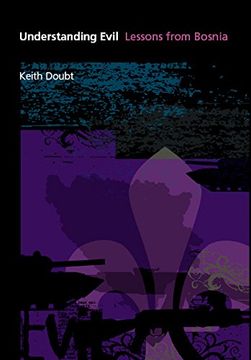Reseña del libro "Understanding Evil: Lessons From Bosnia (en Inglés)"
Understanding Evil seeks to articulate the evil that happened in Bosnia within the context of war crimes and crimes against humanity. Its analysis centers on the question of whether it is possible to understand evil as action. Since the foundations of the social are found in human action, evil's assault on these foundations results in the demise of the social. While evil simulates the outer form of action, ultimately evil belies itself as action. Can someone act with an evil end? Socrates says no, no one willingly does evil. Although, with a mixture of reason and empiricism, the author tries hard to overcome the Socratic position-searching for evil's agency, purpose, means, conditions, and ethos-in the end, the search fails. The author concludes by accepting the Socratic position: action whose end is evil is unthinkable. This tack provides an alternative to recent theorizing about evil by philosophers such as Richard Bernstein and Jeffrey Alexander. The book understands evil via a neologism-as sociocide, the murdering of society. In Bosnia, not only were families destroyed, but their homes as well. Not only were bridges, libraries, schools, mosques, and churches demolished, but towns and cities were obliterated. Bosnian Muslims were murdered behind the mindless rhetoric of "ethnic cleansing," and their history and collective memory were viciously attacked. In the first case, the social violence is called "domicide," in the second, "urbicide," and in the third, "genocide." In Bosnia, however, war took on a truly twisted orientation. Not only were social structures and institutions attacked, but society itself became the target. The book develops the significance of sociocide as the consequence of evil in order to understand the suffering and tragedy of people and communities in Bosnia.

